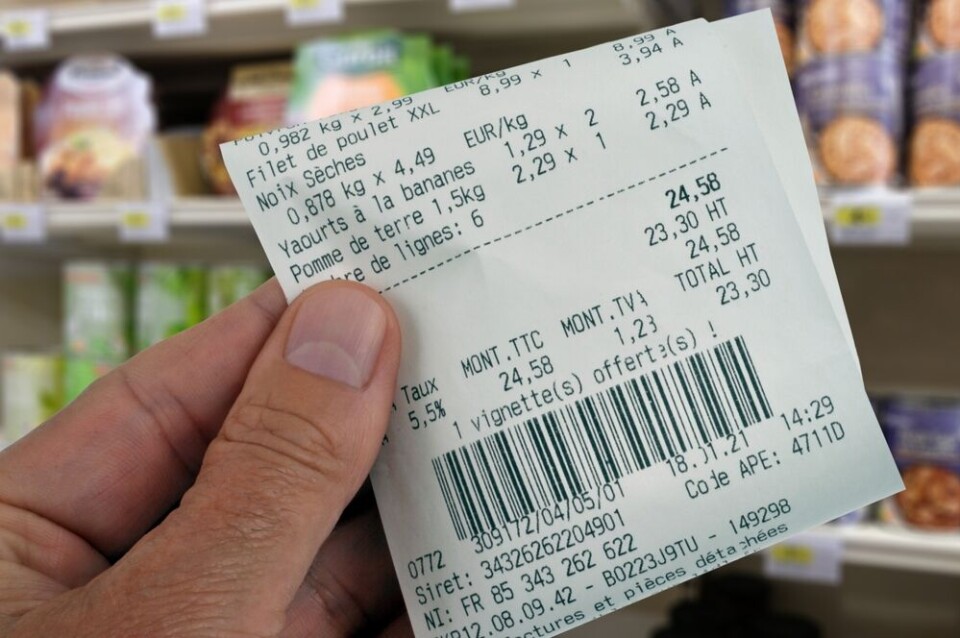-
French second-home visa issues raised in House of Lords
British people experience an "expensive and bureaucratic process" to continue living in France
-
More than 5,000 French communes use AI to identify poor rubbish sorting
Badly-sorted rubbish can cost millions so communes are turning to high-tech solutions
-
The culinary delights of dandelions in France
Laura Washburn Hutton shares her top tips for using seasonal tender leaves in the kitchen
Watch out for false supermarket ‘date-end’ food promotions in France
Some deals may be too good to be true, a consumer magazine warns

Supermarket shoppers have been warned to be alert to offers for almost-expired products after a leading French consumer association found that some pre-offer prices can be inflated to make discounts appear better than they are.
Consumer magazine 60 Millions de consommateurs has alleged that some supermarkets have been inflating the ‘full’ prices of products that are near the end of their expiry dates so that the eventual knock-down offer prices appear more of a bargain.
This practice has been highlighted for sales and promotions before but mainly among clothing and furniture stores and not supermarkets.
Many supermarkets sell products that are close to their expiry or best-before dates at low prices because shops can no longer sell items that have passed these dates. The items are often in a dedicated container.
Use-by or expiry dates (Date limite de consommation, DLC) are used for products that must be eaten by the date stated, while best-before dates (Date de durabilité minimale, DDM) refer to items that may be past their best but are still usually safe to eat (at the consumer’s own discretion).
The consumer magazine sounded the alarm on problematic pricing on these items after consumers noticed that an Auchan store in Vélizy (Yvelines), was selling a close-to-expiry sausage (brand Le Batistou) for €3.85, with a 30% reduction applied to the ‘full price’ €5.50 price tag.
This seemed like a good deal, until it emerged that the sausage was not normally sold at €5.50 at all, but at €4.70. The consumer who posted a photo of the product in question asked: “Is this a mistake?”
@AUCHAN_France @UFCquechoisir @60millions
— Jerecoisdestweets (@jelisdestweets) July 19, 2023
Rayon anti-gaspi de #Auchan Velizy. Le prix avant réduction est gonflé par rapport au prix d’origine. Ce n’est pas une erreur les autres produits identiques avaient le même prix gonflés. Tromperie ? pic.twitter.com/kkdfIx8igi
60 Millions de consommateurs said: “Consumers are obviously [still] paying less than the original price, but they aren’t even saving €1. They’re paying €3.85 instead of the €3.29 they should have paid [if there was 30% off the real full price]. This is 17% more.”
In response to the shopper’s question (above), Auchan wrote: “We apologise for the inconvenience. Could you please DM me with your contact details to alert the shop?” No further public response was sent.
Auchan is not the only supermarket to be accused of inflating pre-sale prices, the magazine said, after studying 63 products across a variety of brands before, during, and after promotional periods.
While the majority of items were reduced correctly, the study did find some anomalies, such as incorrect reference prices, missing products, promotions that could not be found, and promotional periods that were not respected. Even worse, it said that in a few unfortunate cases, products were more expensive after the promotion than before it.
The magazine warned shoppers to remain alert and check if a good deal is, in fact, ‘too good to be true’.
Read more
Beware of bulk-buy ‘deals’ in French supermarkets
Major French supermarkets agree to keep essential food prices down
Has France’s anti-inflation drive cut supermarket food prices?
























